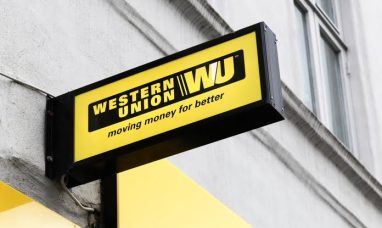The global market for tobacco products expanded by 6.7% each year, from $234.84 billion in 2021 to $250.51 billion in 2022, creating an opportunity for industry giants like Philip Morris International Inc. (NYSE:PM). The Russia-Ukraine war made it more difficult for the world economy to recover from the COVID-19 epidemic, at least briefly.
Tobacco product sales are expected to reach $287.09 billion by 2026, with a compound annual growth rate (CAGR) of 3.5%. There are currently 8 billion people on the earth, with 10 billion predicted by 2050. As a result, future demand for tobacco products will rise.
Philip Morris International Inc. (NYSE:PM), one of the world’s largest tobacco firms and a stock that Motley Fool recommends as a best buy, stands to benefit the most from this development. This company pays consistent dividends. Despite the fact that there are specific issues that must be addressed, the company’s overall financial status is not awful. After comparing Philip Morris stock current price to its true value, I conclude that it is attractively underpriced and recommend buying it.
Financial Well-Being
When appraising the company’s value and estimating its future, it is critical to examine its financial health. If a company’s finances are in good shape, investors will place a higher value on it and regard its prospects favorably. When it comes to Philip Morris’ (NYSE:PM) financial situation, the fact that the company has both short- and long-term negative shareholder equity is not a good indicator.
Assets vs. Liabilities
Furthermore, while having about $6 billion in cash, the company’s debt position is relatively high, with debt of around $27 billion and equity of around -$7 billion. As a result, the debt to equity ratio is -367.9%.
Debt, equity, and liquidity
Despite these troubling figures, it is vital to highlight that its debt coverage is adequate. Philip Morris’ (NYSE:PM) operating cash flow pays down 43.1% of its debt, which I consider to be a good coverage ratio. Furthermore, its EBIT is sufficient to cover its loan interest payments 25 times over. This alleviates some of the tension caused by the company’s growing debt.
Dividend
Philip Morris (NYSE:PM) is a recognized company due to its consistency in delivering dividends. It has a favorable dividend history that is much greater than the industry average. It has a 14-year track record of growth compared to the company’s 2.5-year average. Furthermore, unlike the industry average of 13.5 years, the company has paid dividends regularly for the previous 14 years. This pattern, in my opinion, propels the company to the top of the dividend payers in the industry.
Dividends per share have remained very consistent over the last 10 years. Surprisingly, predictions show that its dividend will continue to rise long beyond 2025.
It is among the top quarter of dividend payers in the US market, with a dividend yield of 4.99%, outperforming both the top and bottom quarters’ yields of 4.22% and 1.49%, respectively. I believe the company would be interested in this position.
Earnings exceed the existing payout ratio of 84%. It demonstrates the company’s commitment to returning a significant amount of profits to shareholders, which is critical for long-term viability. It has a cash payout ratio of roughly 70%, thus cash flows are sufficient to fund it. The existing dividend policy of the corporation is both desirable and practical.
Valuation
When compared to its competitors using the P/E ratio, Philip Morris (NYSE:PM) is valued lower. The stock is trading at a discount of 18.12X to the sector average of 21.15X. However, in relation to the industry median PS ratio, this company is expensive. It has a P/S ratio of 4.98X, which is significantly greater than the sector average of 1.23X.
The crucial question is how undervalued this company is in general. To gain an answer, I’ll compare the share price to the company’s fair value. According to statistics from simplywall.st, the stock is presently trading at $101.81, which is less than its fair value of $155.44. This implies that it is approximately 35% undervalued, indicating a good growth opportunity for the company.
Conclusion
Philip Morris (NYSE:PM) has a better chance of prospering because it is one of the most successful companies in the sector, and the tobacco market is expected to grow. The company has continuously paid dividends over the years, and its dividend policy is highly sustainable because its earnings are sufficient to pay them.
Philip Morris stock is currently trading at a 35% discount to its fair value, which is an excellent offer for anyone looking for a tobacco company that pays a stable dividend and is increasing. As a result, I recommend that you buy the company.
Featured Image: Freepik









